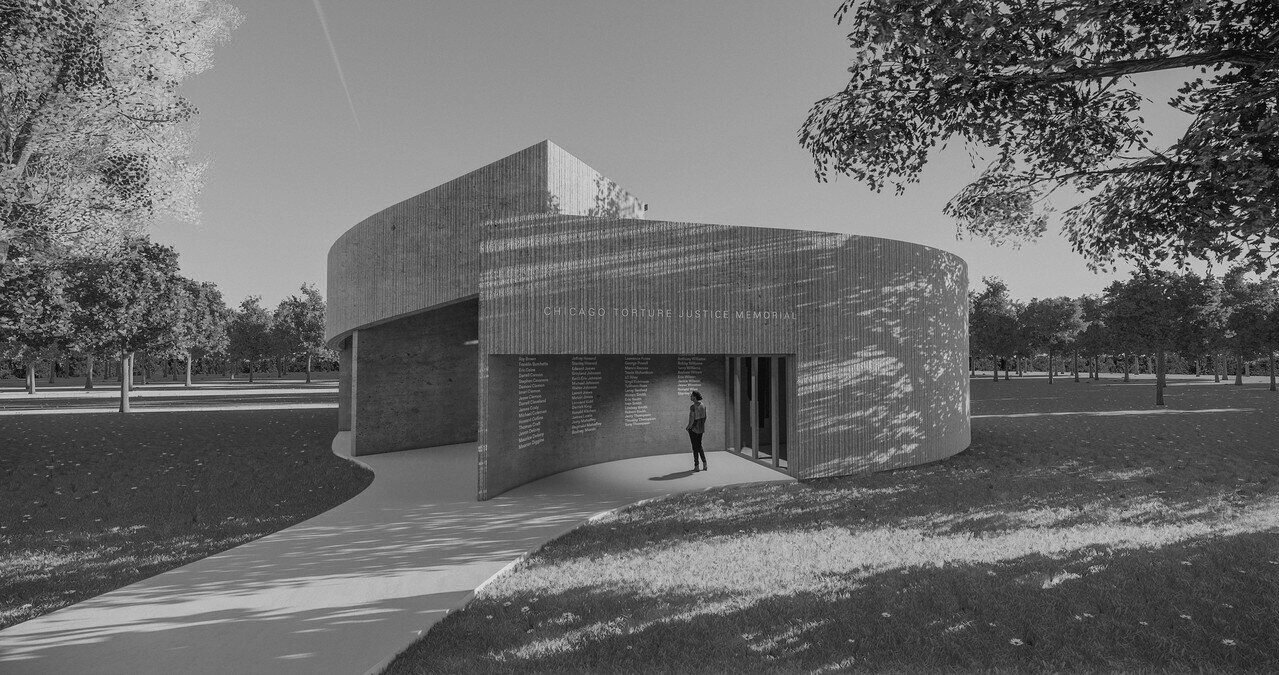
Adding Faces to the Names
The Burge Survivors
A Portrait and Documentary Film Series
From 1972 to 1991, the Chicago Police Department, under the direction of former Police Commander Jon Burge, tortured over 120 Black men and Women. These portraits are intended to honor the decades-long struggle for justice, as well as the survivors, families, and communities targeted by Burge and his midnight crew. As the Chicago Torture Justice Memorial continues to be realized, documentation will contribute to the Chicago Torture Justice Memorial and Center.
Nearly $200K in Grants Announced for “Envisioning Justice” Projects Across State of Illinois Meant to Challenge Common Conceptions of Mass Incarceration and Envision a Truly Just Society
FOR IMMEDIATE RELEASE: December 4, 2020
CONTACT: Ned Schaub, ned.schaub@ilhumanities.org / 312-533-1514
Illinois Humanities announced today it will award $190,000 in grants to 26 organizations and individuals to support projects across Illinois that respond to the impacts of mass incarceration and collectively envision a society that is restorative, healing, and just for all.
“Especially in this moment of continued duress, Illinois Humanities is proud to support work that is harnessing the arts and humanities to help communities to reimagine critical issues—such as the criminal justice system—in their lives,” said Illinois Humanities Executive Director Gabrielle Lyon, PhD. “We are firm believers that the arts and humanities help us to step back and reimagine policies and systems, particularly those that are causing great harm.”
Envisioning Justice, an ambitious initiative that Illinois Humanities has led since 2017, engages Illinoisans in conversation about the impact of mass incarceration in local communities and invites organizations, collectives, and individuals to use the arts and humanities to devise strategies toward a truly just society. To date, this initiative has included multiyear partnerships with seven Chicago community-based groups, work that culminated in a citywide exhibition in August 2019, which attracted nearly 12,000 visitors.
During 2021, Illinois Humanities will be expanding Envisioning Justice throughout Illinois. Over the next three years Illinois Humanities plans to commission local artists and humanists to create new work that responds to and grapples with mass incarceration in impacted communities, and will develop an interactive digital tool that people throughout the state can use to spark conversation, reflection, and action within their own communities.
This current cycle of projects is made possible through the generous support of both the Art for Justice Fund, a sponsored project of Rockefeller Philanthropy Advisors, and the Andrew W. Mellon Foundation. They include two categories:
Envisioning Justice Action Grants, funded by the Art for Justice Fund, will be awarded to 13 Illinois-based projects responding to mass incarceration and amplifying new visions of justice from communities impacted by our criminal legal system. Of the 13 grants being announced, 11 are in Cook County, one is in Will County, and one is in Champaign County. Seven Action Grants will go to organizations and six to individuals.
Envisioning Justice Place-Based Grants, funded by the Andrew W. Mellon Foundation, will be awarded to 12 additional projects outside of the Chicago metropolitan area. These projects explore the impacts of mass incarceration in six communities that were selected for being geographically representative, housing a prison or jail, and/or having experienced demographic shifts as a result of the proximity of this institution. These communities include the Bloomington-Normal metropolitan area, Carbondale, Decatur, East St. Louis, Galesburg, and Urbana-Champaign.

Selected Design for Public Memorial | Designed by Chicago artists Patricia Nguyen and architectural designer John LeeOur Funders
This program is made possible in part by a grant from Illinois Humanities, with support from the Art for Justice Fund, a sponsored project of Rockefeller Philanthropy Advisors. RPA and the Art for Justice Fund may include information on this grant in its periodic public reports. RPA and the Art for Justice Fund may also refer to the grant in a press release Any views, findings, conclusions, or recommendations expressed by speakers, program participants, or audiences do not necessarily reflect those of the Illinois Humanities, our partnering organizations, or our funders.






